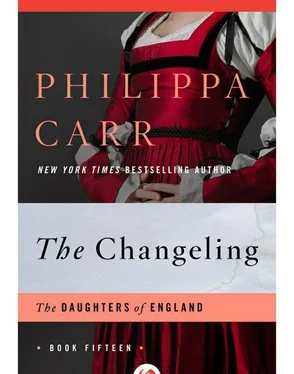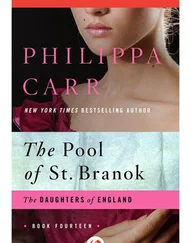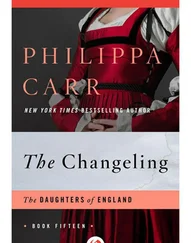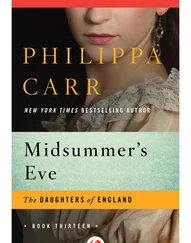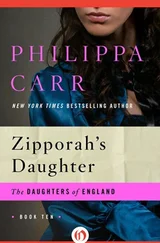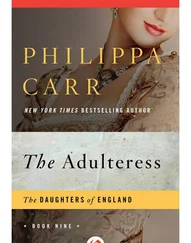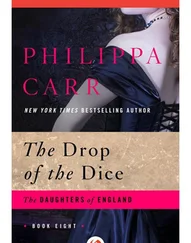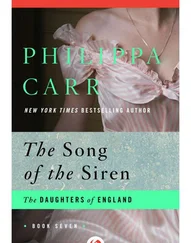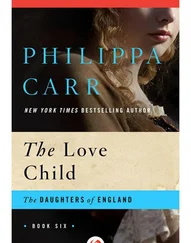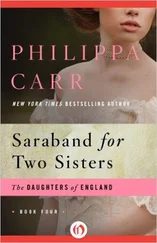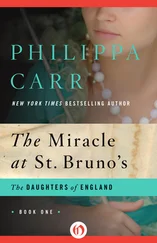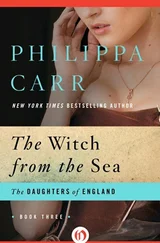My mother nodded again. “Oh, poor, poor Jenny,” she said. “I feel so very sorry for her. We must be as kind to her as we can.”
We were silent, looking at the pool. I was thinking of the days I had spent in Jenny’s cottage, and wishing I could remember more of that time; I was thinking of her ringing toy bells to drive people away so that she could have me to herself.
I felt that poor Jenny was a part of my childhood and I must always be kind and understanding towards her. I knew that was how my mother felt.
I was constantly reminding myself of little incidents from that Last Summer. I remember seeing Jenny often walking along the lanes past the pool to her cottage, singing to herself in that slightly out of tune way which gave her an otherworldliness that was, for me, intriguing.
She seemed happy and her happiness was in constant delusion. She thought she was going to have a child to replace the one which she had lost; it was what she longed for, and in her simple mind she believed that child would be born to her.
It was pathetic, and yet in a way she was happy because she believed in her fantasy.
Another incident I remembered from that summer occurred when I was in the company of my grandmother. We were the greatest of friends; she seemed too young to be a grandmother; she was more like a lively young aunt or an elder sister.
She told me a great deal about my mother. “You must look after her,” she said. “She has had a sad time, you know. She was married to a wonderful man—your father—and he died before you were born and she was all alone.”
She had explained several times that my father had wanted to go to Australia to make a fortune so that we could all come back to England and live in comfort. He had gone to find gold and Pedrek’s parents had been with him and my mother. They had lived in the township which was a very brave thing to do because they were all unused to hardship. Pedrek’s father and mine had been partners. She explained to me how the mines could be quite unsafe; they had to be propped up with wood so that they would not cave in, which was what theirs did. Pedrek’s father had been down in the mine when it happened, and my father went down and brought him up. He had passed him to the watchers on the brink and before they could help my father out, there was a great fall of earth, and he had been taken down with it.
“He gave his life for his friend,” she finished.
“I know,” I replied. “Pedrek’s mother told me. She said Pedrek and I must always remember this and be friends for ever.”
She nodded. “You will,” she said. “I know you will be. And you must love your mother dearly, for when he died … she gave all that love she had had for him to you.”
I understood. It was how I wanted it to be.
On this particular day we walked down to West Poldorey to the ancient church which stood close to the sea. It was small, dating back to Norman times. West Poldorey was very proud of it and East Poldorey a little envious because it wasn’t on their side, for people from far off came to look at it and it was said it should never be allowed to crumble away. There were many bazaars and garden fetes to bolster up its roof which needed constant repair and I heard ominous talk of woodworm and death watch beetle.
I liked to creep in when no one was there and think of all those people who had sat in that church, just as I was doing. My grandfather had said that people had gone in there to pray when the Armada was off our coast and again when Napoleon was threatening to invade us. In the old church—as in Cador—one could easily slip back into the past.
The church door was open and we heard voices inside.
“I know,” said my grandmother. “They are decorating the church with flowers for John Polgarth’s wedding.” John Polgarth was the man who owned the grocer’s shop in East Poldorey, quite a worthy member of the community, and he was to marry Molly Agar, daughter of the butcher.
The wedding was to be the next day.
As we stepped through the door I heard the commanding voice of Mrs. Polhenny. She was a very important person in the neighborhood because she followed the profession of midwife and most of the younger generation had been brought into the world by her. I always thought she believed that gave her the right to pass judgment on their actions and superintend their spiritual welfare, for this she did in no uncertain way.
She was naturally not popular with her protégés. That was of no importance to her. She would have said she was not there to make people like her but to put them on the road to salvation.
Mrs. Polhenny was a good woman if by good it was meant that she went to church twice every Sunday and often in the week, that she was involved in most good works for the salvation of the church, and that she could apply the Scriptures to almost every occasion; and as she could not help being deeply aware of her own goodness she was quick to detect the sin in others.
Naturally her life was one long disapproval of almost everyone around her. Even the vicar came in for criticism. He took the Bible teaching too literally, she said, and was inclined to seek the company of the publicans and sinners rather than those whose sins had been washed away by the blood of the Lamb because of their devotion to duty and their love of virtue.
I did not like Mrs. Polhenny. I found her a most uncomfortable person. Not that I had a great deal to do with her, but I was sorry for Leah, her daughter, who was about sixteen years old at this time. Mrs. Polhenny was a widow but I had never heard of a Mr. Polhenny; there must have been one, otherwise there could not have been a Leah.
“She must have killed him off pretty quick,” was the comment of Mrs. Garnett, the cook at Cador. “Poor fellow, I reckon he had a rare old time of it.”
Leah was very pretty but she always seemed cowed as though she were looking over her shoulder, expecting the devil to be lurking somewhere ready to spring out and tempt her.
Leah was a seamstress. She did beautiful embroidery which she and her mother took into Plymouth once a month and sold to a shop there. Her work was exquisite and the poor girl was kept at it.
On this day she was in church with her mother, helping with the flowers, and Mrs. Polhenny was giving orders to her.
“Good morning, Mrs. Polhenny,” said my grandmother. “What beautiful roses!”
Mrs. Polhenny looked pleased. “It’ll be a good show for the wedding, Mrs. Hanson.”
“Oh yes indeed … John Polgarth and Molly Agar.”
“Everyone in the towns will be there to see them wed,” went on Mrs. Polhenny, and added significantly: “And it’s about time, too.”
“I’m sure they will be very suited. Nice girl, Molly.”
“H’m,” said Mrs. Polhenny. “A bit on the flighty side.”
“Oh, she’s just high spirited.”
“Agar did well to get her married. She’s not the sort to be left unwed.” Mrs. Polhenny pursed her lips, hinting at secret knowledge.
“Well, it’s all for the best then,” replied my grandmother.
There was a movement behind us. Mrs. Polhenny was studying the flowers in the container. I glanced around. The newcomer was a young girl. I did not know her. She slipped into one of the pews and knelt down.
Mrs. Polhenny said: “Bring me that spray, Leah. That would go very well here …” She stopped short. She was staring at the girl kneeling in the pew.
“Can I believe my eyes?” she said loudly and with indignation.
We were all silent, wondering what she meant. She had left the flowers and walked briskly down the aisle to the girl.
“Get out!” she cried. “You slut! How dare you come into this holy place? It’s not for the likes of you.”
Читать дальше
